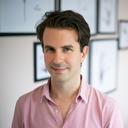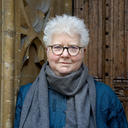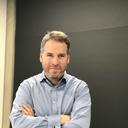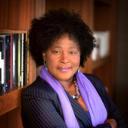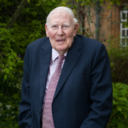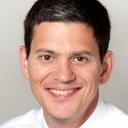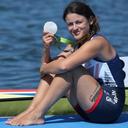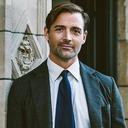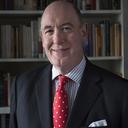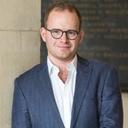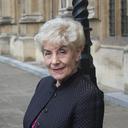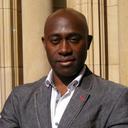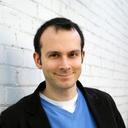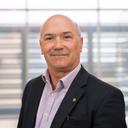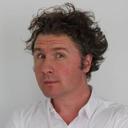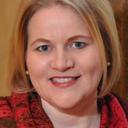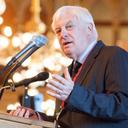ALUMNI STORIES: 'OXFORD NURTURED MY UNCONVENTIONAL AMBITION'
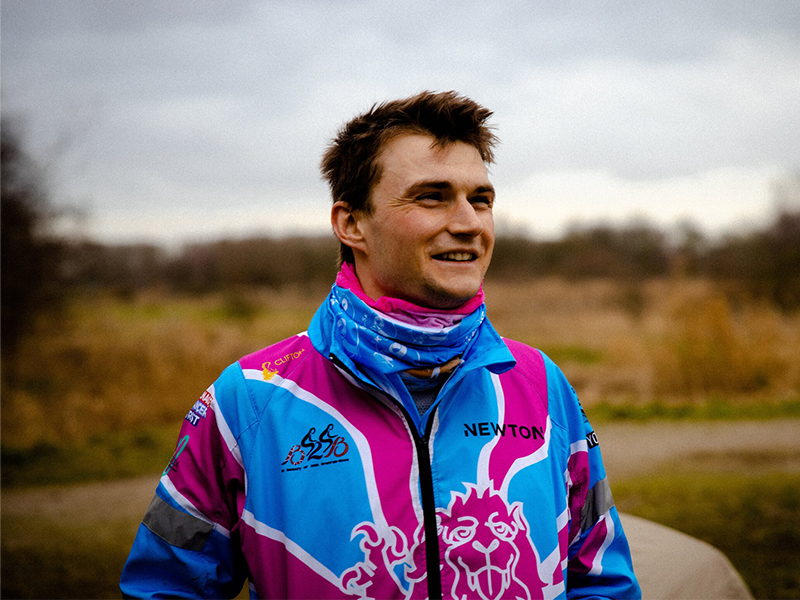
ALUMNI STORIES: 'OXFORD NURTURED MY UNCONVENTIONAL AMBITION'
Luke Grenfell-Shaw (Worcester, 2018) reflects on his time at Oxford and offers invaluable advice on preparing for long-distance journeys and embracing life's challenges.
Published: 16 April 2024
Author: Tiya Muluzi
Read an extract of the interview below.
What drew you to study at Oxford?
What really attracted me about Oxford was the intellectual community. It had always been a dream of mine to study at Oxford and be surrounded by some really bright and ambitious people. The Water Science, Policy and Management course was really exciting, particularly because we are going through such upheavals in our climate and our environment, and water is one of our most critical resources. I was like, "Let's dive into it" and hopefully be a bit better prepared and be able to offer something for the direction that our world is going in.
What were the key milestones in your career since leaving Oxford?
I think there have been a few key milestones since I've graduated from Oxford. Above all, the Bristol to Beijing cycle ride where we raised £130,000 for cancer charities and cycled 30,000 kilometres across 29 countries. And I had 800 different people join me on a tandem bike; that was just incredibly special. And then this year, I got awarded an MBE for raising money for the cancer charities, which I guess was just a reflection of the incredible generosity and hard work of many people. It was totally unexpected and quite a significant milestone whilst still being only 29 years old.
I think the other couple of milestones that I'm really excited about that, but haven’t happened quite yet, are the book and film that I’m working on. I’m working on a second draft of the book and the film should be completed by the end of summer. We are looking for outside investment to get it over the line and share it with the world, so get in touch if you know someone who can help!
What are your top preparation tips and personal experiences for long-distance journeys like the Bristol2Beijing initiative?
I would say one tip is just tell people what you're doing so you start holding yourself accountable to other people. One of the big things I was scared about, was I having this great idea, but that I wasn't going to follow through. So I started telling everyone I knew about it. Also, because we were trying to do something quite big and ambitious, I formed an amazing team of volunteers around me who supported the ride incredibly, and that also changed it from being just an idea to something that really happened. Have a rough route in mind of where you want to go but also be super open and flexible to what you find. My route changed massively, partly because of Covid but partly because of what you find and respond to. At least for me, part of the enjoyment of travel is discovering, and it's those discoveries that will take you in a different direction because you end up with more information than you did at the start. So, I think that element of flexibility is vital.
The final piece of advice I would say is don't feel like you've got to be ready, just throw yourself out there: begin, accept that you're going to learn along the way, and you're not going to have all the answers to begin with. The most important thing to do is just get going and accept that, the first time it's not all going to be plain sailing, but that won’t stop you from having an amazing and enriching time.
Did you face any challenges along the way?
Many, many challenges. I had a lot of bike problems. I don't know how many times I had flat tires, broken spikes, problems with the gears. I think in Pakistan alone, I had 14 flat tires, so that can get you down a bit. At the same time, it teaches you, if you have a flat tire, you aren't moving until you fix it, so you might as well just get on and fix it rather than throwing a hissy fit.
There can be physical challenges. When I was cycling across Ukraine, I was going into perhaps a 40-mph headwind for the whole time, so I was going at a pretty much walking pace for a couple of weeks, and that was mentally really tough. But at that time, I reminded myself that if I was still in hospital having chemotherapy, I would give anything to be here, in freezing, windswept Ukraine. That perspective can be immensely powerful.
I think in terms of the rewards, cycling on the tandem and involveing local partners and local communities makes in immensely fulfilling. We did a lot with local cancer charities, and obviously, I got people to join me on the route who were from the countries I was passing through. I think that creates an important distinction so that you're no longer a tourist as such: to a much greater extent, you’re not just spectating on what you're seeing; you're being involved in other people's lives, in other people's problems. And I think it's really special when you start moving away from being a spectator and a tourist, and you're just a little bit more integrated. And I think that's one of the most special things about doing an expedition where you are working hard to include and give something to the places that you're travelling through. I would give talks at schools and the interactions with the students afterwards were some of the most meaningful parts: when a student is in tears and wants to give you a hug, you know you’ve said something that really impacts them.
Can you tell us more about your book and documentary?
The documentary is called ‘A Life in Tandem’. I am so excited to share it. We have an awesome team. Our executive producer is Ellen Windemuth; she was the executive producer for ‘My Octopus Teacher’, which won an Oscar in 2019 for best documentary. We've got an animator who worked for Disney, and we've got an editor who's has work on Netflix and Sky. So, we've got this incredible team, and there's a really powerful story behind it.
But I think one of the things that makes this very special as a documentary, and much more than just an adventure documentary, is that it's really the story isn't about the cycle ride. It's about the relationships and my relationship with my Mum and everything that we had to deal with. My relationship with my brother John and what that means now. And then relationships that I had with seventeen-year-old Dev in India who joined me for a thousand miles there and had cancer when he was a kid, and Gennadiy who was a bishop that we met in Mariupol. That's the documentary:.
When it comes to the book, that goes into so much more detail and depth in terms of like what my mindset was and how I tried to approach having cancer, losing my brother, everything that happened. And in terms of the teasers, you get to hear about the stuff that happened when the cameras weren't rolling, such as what happened on a Kyrgyz mountain when my brakes failed, how we got out of that, and getting kidnapped on the border in with Turkmenistan. So, there are a few quite juicy stories there. I’m working on my second draft and now looking for the right publisher.
How has your experience with cancer shaped your journey?
I was diagnosed with a very rare form of cancer. It was already stage four, and I had a huge primary tumour beneath my left shoulder blade. It had also spread to my lungs. You know, we just didn't think I would live more than a few months because people don't usually. And I suppose in those situations, you have to make a really clear decision of: are you going to let this get you down, or are you going to go full guns blazing? I don't think there's much middle ground at that point.
And although I didn't think I would live, what I decided to do is I would try and do everything I can to give myself the best possible chance of living. And that's a subtle difference but an important one. And that's the one that kind of means that you then take back some control, and it allows you to have a positive mindset. And I wanted to live my best possible life even if I was going through treatment. And I wanted to do everything I could to maximise my chances of survival.
I started Oxford when I was on chemo. I had radiotherapy up at the Churchill. And I remember running from Worcester College every single morning there and back to the Churchill hospital. I think I was the only one who ever ran there. But being part of Oxford at that point was incredibly important because it gave me this identity away from being a patient. And it also gave me a huge purpose. I couldn't spend loads of time thinking about my cancer and my treatment because I was focused on essays and meeting people, and getting involved in the different activities such as the Oxford Development Consultancy and touch rugby and triathlon.
Could you explain the term 'CanLiver'?
When I was diagnosed with cancer, I was doing a lot of reading, trying to find some good news stories. Couldn't really find any, but I did come across this term "cancer survivor." I remember one afternoon reading the blog post of some guy who was about my age, who was saying, "I've been treated, it's been successful, I'm now a cancer survivor, you know, I've survived, I've won, I can move on with my life." And then there's a postscript to it, saying three months after this blog post was written, the guy died. And to me, that epitomised everything that was wrong with this term, that for so many adults who are diagnosed with cancer, you don't get certainty that you will ever beat it. It's something that you have to live with for the rest of your life.
So, for me, I wanted to give a label to myself that really summed up my experience of what it was to live with cancer. And so, the term "CanLiver" is one that tries to show that okay, you can live with cancer, you can live your dreams, you can still be active. But it also tries to embrace the realism of what it means to live with cancer, that living with cancer also involves a lot of challenges and uncertainties. And it's not something you can just leave behind.
Whether that's the challenges of being tired from treatment or sick from chemo or not knowing if you're going to see your kids grow up, you know, or if you're going to be there at the next University reunion. It's trying to give a lot more a realistic but also positive term for what it is to have cancer. So, that's why I came up with the term "CanLliver."
Your life combines adventure, education and helping others. How do these aspects come together?
I think the trick is that they all do support each other, and the way that I've tried to build my life is that these components really complement each other. So, while from the outside it might seem like this mix could never work, I guess I've very consciously chosen this path. And I think Oxford gave me the confidence to go and do something that was quite unusual and different. This isn’t a conventional career path, and it's taken a long time to pull the pieces together.It's still very much a work in progress.
But I see, you know, the adventure often provides the stories that I then want to share in the film. And for me, making films isn't very interesting if there isn't a real kind of meaning and message behind it. And that, to me, is where the educational side comes in. So, I've ended up developing a course out at the University of Central Asia on storytelling in nature. For me, that's also incredibly exciting to start applying some of the things I've learned and sharing them with a part of the world that I absolutely love.
What does being recognised in the King's Honours list for charitable fundraising mean to you and how has your work impacted the people and communities you support?
First of all, in some ways I feel a bit jammy getting the MBE when I know how many people contributed towards this trip. As I said, there were this amazing team of volunteers, the Bristol to Beijing team, who did all the hard work, everything from raising money to finances to the social media to border logistics to outreach with the local charities. They did a huge amount. There were also many people who made the journey possible, particularly during Covid.
I had ambassadors help me, I had government officials help me, I had national media amplify the story which allowed me to travel as far as I did and reach thousands, if not millions of people, and then of course, there were the 800 people who joined me on the tandem, there were their families, there were the cancer charities that we worked with in India and Pakistan, in Central Asia and across Europe. So, I guess I see it that I'm the very lucky recipient of what was a huge effort from a lot of people.
I think also it's a reflection on the generosity of a huge number of people who decided they would use their money to support projects that are ones that I really care about, you know, cancer charities. But to give an example of how this money makes a difference, one of the charities we supported is called ‘Move Against Cancer’. They do absolutely phenomenal work. One of the things they do is they have a project called 5K Your Way which happens alongside park run. It's basically a cancer support group that does park runs once a month, and it gets people active, it gets them moving, it's full of positive vibes. I believe that physical activity is the most important thing you can do to help yourself when you’re diagnosed with cancer, so I’m a massive believer in what they do.
They are a tiny charity, and so by raising money for them, we were able to enable them to hire up their first member of full-time staff, which allowed them to grow from, I think, about 40 to 100 different branchesacross the UK. So, it made a huge impact for Move Against Cancer.
Which of your projects so far are you most proud of?
I've talked a lot about the Bristol to Beijing cycle ride, but since then, there are some things that I'm really proud of. The first is a film that I recently shot out in China in Sichuan with a young Chinese CanLiver called Dan Dan. We went for a multi-day hike in the Four Sisters mountain range near Chengdu. In the space of a month, we've taken the raw footage and turned it into a film. It premiered at the Kendal Mountain Film Festival in November 2023. That's something I'm hugely proud of. It will be the first film that I've ever made. And again, for me, I have this immense privilege that I basically get to cast my net into China and say, you know, “who wants to join me doing a really special expedition?”, and we're going to try and spread a really powerful message. And I think if I hadn't had cancer, I would never be able to do something like this, so I feel immensely lucky.
The second thing I'm super proud of is that I recently became an elite athlete for Brooks, who are a running company, because I do a lot of ultra-running. I won some significant 50 kilometer and 100 kilometer ultraraces, and I came eighth at UTMB CCC, which is sort of the biggest 100-kilometer race in the world, back in September. So, as a 14-year-old boy, this is like something I would absolutely have dreamed of, and now it’s happened after a hell of a lot of hard work. So yeah, that's something I'm really proud of because I've worked hard for it, about 20 years, having been a moderately but not particularly talented runner, but it's really nice to have finally got to a point where I'm legitimately quite good. I’ve just been selected for Great Britain to run in the European Championships in Annecy, France, on 1st June, so I’m very excited to represented my country for the first time!
What are your favourite memories of your time at Oxford?
I was at Worcester College, and I loved Worcester. My favourite memory was how during exam season, I would go for a walk every hour past the beautiful flowers, past the serene lake. And every single time, I just felt so lucky. It was beautiful, it was calming, and yeah, it was just immensely special to have that on my doorstep. So that's my favourite memory.
What do you miss about Oxford?
I think in two ways. One way is that I think it gave me the confidence to do something a lot less conventional and go down a path that involves writing, film, teaching at a university, and being a runner, and just having the confidence to sort of pull it all off.
Secondly, I think when you're at Oxford, you see a lot of people just achieving stuff and having a big ambition to change the world in some way, big or small, and I think that helped grow and nurture that desire that I had inside of myself to also do the same. That's another big factor.
How has your time at Oxford inspired your career?
I think in two ways. One way is that I think it gave me the confidence to do something a lot less conventional and go down a path that involves writing, film, teaching at a university, and being a runner, and just having the confidence to sort of pull it all off.
And I think when you're at Oxford, you see a lot of people just achieving stuff and having a big ambition to change the world in some way, big or small, and I think that helped grow and nurture that desire that I had inside of myself to also do the same. So, I think that's another big factor.
How has Oxford changed you?
I think, perhaps above all, it's given me confidence to pursue what I really want to do. When you're at Oxford, you're surrounded by people who are not only very capable but very confident, and they want to go and change the world, and I think when you are surrounded by those people and you realise that can definitely apply to me as well. So, I think one thing I definitely gained was that immovable backbone of self-confidence.
Luke is looking for additional financing for the feature documentary A Life In Tandem. Watch the trailer here.
You can watch his first short documentary film, Our Best Foot Forward, here.
Follow Luke on Instagram or get in touch at lukegshaw@outlook.com
Find out more about Move Against Cancer and 5K Your Way.




